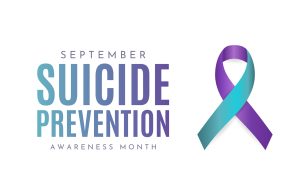 Suicide is currently the 11th leading cause of death in the United States. It can happen for a wide variety of reasons, but some of the most common risk factors include:
Suicide is currently the 11th leading cause of death in the United States. It can happen for a wide variety of reasons, but some of the most common risk factors include:
- Personal or family history of suicide attempts
- Personal or family history of mental disorders or substance use disorders
- Chronic pain
- Exposure to family violence, including physical or sexual abuse
- The presence of firearms in the home
- Recent release from prison or jail
- Exposure to suicidal behavior from other people
While suicide is most common among middle-aged people, particularly men, it can happen among people of all ages. Many of the same warning signs apply to both adults and young people, but some may be different. Additionally, not all of these signs necessarily indicate that a person actually intends to commit suicide; however, they can indicate that the person is at risk and may benefit from preventative treatment.
For adults, suicide warning signs to watch out for include:
- Talking about or planning suicide
- Anxious, agitated, or reckless behavior
- Talking about being a burden to others
- Talking about feeling trapped or experiencing unbearable pain
- Increased or frequent usage of alcohol and/or drugs
- Talking about feeling hopeless or having no reason to live
- Insufficient or excessive sleep
- Social isolation
- Extreme moods or mood swings
In addition to the above indicators, warning signs for young people include:
- Expressing hopelessness about the future
- Severe or overwhelming emotional pain or distress
- Anger or hostility that seems increased and/or out of character
Whether or not you believe a person may genuinely commit suicide, do not dismiss these warning signs; they are indicators of serious underlying mental health problems. Let them know that you have recognized changes in their behavior, that they are not alone, and that you are there to support them. You should also do what you can to make sure that they feel comfortable speaking openly with you about what’s troubling them.
Aside from providing support, the most helpful step you can take for someone who may be at risk of committing suicide is to encourage them to get professional help. You can reach Flushing Hospital Medical Center’s Outpatient Psychiatric Clinic to schedule an appointment or get more information by calling (718) 670-5562.
If you or someone you know is having suicidal thoughts or demonstrating suicidal behaviors, get help immediately. Call 911, 1-800-SUICIDE, or 1-800-273-TALK right away.
All content of this newsletter is intended for general information purposes only and is not intended or implied to be a substitute for professional medical advice, diagnosis or treatment. Please consult a medical professional before adopting any of the suggestions on this page. You must never disregard professional medical advice or delay seeking medical treatment based upon any content of this newsletter. PROMPTLY CONSULT YOUR PHYSICIAN OR CALL 911 IF YOU BELIEVE YOU HAVE A MEDICAL EMERGENCY.
